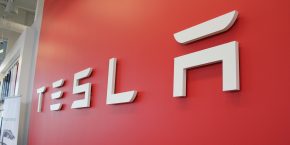
Tesla is suing a Chinese media group over an article that described Tesla having serious quality issues and poor working conditions at Gigafactory Shanghai.
The article
Pingwest, a Chinese publication that describes itself as “the story of China’s tech evolution, beyond the headlines,” published a damning article on Tesla last month titled “Giga-Sweatshop Meets Corporate Overlords: an Exclusive Look Into How Tesla China Runs its Shanghai Gigafactory 3.”
The article includes wide-ranging claims of quality problems at Tesla’s factory as well as bad working conditions and even questionable sales tactics.
Most of the claims are based on single unnamed sources that Pingwest says work at Tesla or Tesla suppliers.
The claims vary from simple complaints about the food served at the factory:
Back in his last gig, Liu recalls, superiors would bring workers snacks and say nice things like “everybody did a good job today” to them, while senior engineers would even cook dumplings and share them with juniors. Tesla’s Shanghai factory doesn’t have dumplings. It doesn’t even have snacks made available to workers. There was, however, extra boxed meals for employees who work shifts after 8:30PM, which soon downgraded to instant noodle, and eventually packaged bread that was easy to store. Many of whom used to the cuisines worldwide while working for other foreign-owned factories found themselves suffering from gastro reflux caused by chain-eating instant noodle, and their requests for more staple food such as steam bread declined, and even receiving expired packaged bread.
To more serious allegations of knowingly using defective parts:
The existence of these parts in Tesla’s supply chain may also have been the result of speed pressure. “We simply can’t make enough parts that meet quality standard. It’s stressful,” said a representative of a Tesla supplier who wishes not to be named, “the solution has been straightforward: just take the defective parts, and send them to Tesla.”
The article also directly names Tesla executive Tom Zhu (Zhu Xiaotong) and alleges that he often insults employees and doesn’t allow employees to work from home despite company policy.
Tesla fights back
Tesla, and CEO Elon Musk in particular, have been known to fight back against media, but in a rare move, the automaker is actually taking Pingwest to court over the article.
The Global Times reports:
According to a statement issued on Sunday by the Beijing PingWest Interact Technology Co, the company received the indictment, a notice of responding to prosecution, as well as other affidavit from Tesla. The materials had been sent by the Shanghai Pudong New Area People’s Court. PingWest is required to submit relevant counter evidences, if any, before February 8.
Tesla reportedly didn’t respond to Pingwest’s original request for comment and a response to the claims hasn’t been made public as part of the lawsuit.
Electrek‘s take
It’s rare for a major company like Tesla to decide to take a media company to court like that.
The automaker has been known to fight against negative media reports. For example, there was the famous case of the New York Times article following the launch of the Model S.
But it’s not unprecedented for Tesla to actually sue media.
Some might remember Tesla suing Top Gear for staging the Roadster running out of battery and Tesla ended up losing in court because the show was considered to only be “entertainment.”
That was a decade ago though, and now Tesla is a much different company.
It’s surprising to me that they would take this route to fight that media report, but I am not familiar with Chinese laws and it might actually make sense in this case. I don’t know.
As for the credibility of the report, they seem to be well informed. When they talk about the management in China and the strange suspension recall, they seem to have accurate information and sources.
However, on some of the more damning claims, they most often only use one unnamed source for each, which is a lot more questionable.
I don’t know if we are going to be able to follow the lawsuit like we can with US lawsuits, but it could be interesting.
As usual, Tesla fans will simply toss this whole thing as just the forces at play trying to cast FUD (fear, uncertainty, and doubt) on the automaker, while the Tesla shorts will claim that the automaker is trying to bury its wrongdoings.
In my opinion, the truth most likely lies in the middle.
FTC: We use income earning auto affiliate links. More.



Comments